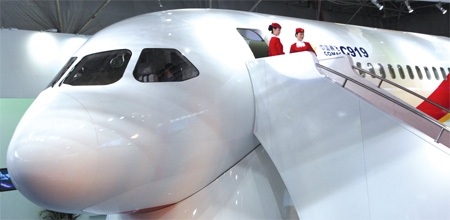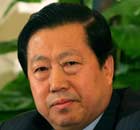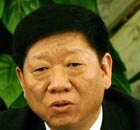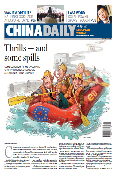Find the middle road between East and West
Updated: 2010-11-22 13:42
(chinadaily.com.cn)
Comment on "More Marco Polos needed to know China" (Nov 11, China Daily)
I think the gulf between a Western worldview and an Eastern one is immense. I think people forget about this and fill the gap with stereotypes. But the fact is that understanding the Chinese way for a Westerner and vice versa is not easy. It takes an open mind, suspension of judgment, time, and honest, reflective thought. Since our identities occupy us to our very core, this is not an easy task. Especially since so much on the surface seems dead wrong at first glance, from both sides.
How many individuals are even fully aware that their worldview contains deep preconceptions according to their culture and upbringing? How fair is it even to ask people this, when, again, inspecting these preconceptions strikes to the very heart of people's identities?
Having said that, it is a solid fact that the two ways of thinking are meeting now as never before. It doesn't help that the meeting is fraught with all kinds of economic and nationalistic sentiment. Nevertheless, people who want to view the world in a realistic way must seek to combine the two ways in their minds, regardless of the difficulties involved.
As other posters indicate, both civilizations have and always have had a lot to learn from one another. I feel happy to be in China for a number of reasons, not the least of which is the Chinese attitude regarding living, which is more communal than the individualistic West, especially the US. Selfish materialism can only take one so far, as can commercialization of all aspects of life.
On the other hand, I'm not happy with having my access to information curtailed. I can understand it to some degree, but still, it just doesn't seem right to my Western sensibilities. But I do understand the Chinese perception that they need to contain the Western influence, given the history with the West, which certainly hasn't been positive in many regards. As far as keeping information from their own citizens, this is an aspect of power the US and others use as well.
I remember when I first started teaching here. One way to generate conversation (and encourage critical thinking) is to ask, "Why?" when a student gives a response. The students cooperated for a time, and then one day they asked me why I did that. They never thought about "why" and it was difficult for them to make responses. No one had ever asked them why about anything. In the US, students are the ones asking why, as in, why do I have to learn this? And why can't I go to the bathroom right now?
Seriously, though, there are huge and fascinating differences, and they are deep and fundamental. Exploring these with an open mind is one of the things that makes life interesting and worth living, to me at any rate. Criticism, like anything, needs to not go to extremes -- either overly critical (West) or uncritical (East). There's a middle road that leads to understanding and perception of reality, and I do believe those were the words of an Eastern holy man.
leon, on China Daily website
Paper's Digest

Chinese jet takes on Big 2
First large commercial plane set to ride on demand for aircraft as economy grows.
Super-CPU only for domestic eyes
Specials

Gaining ground
Doing business in china for westerners has come a long way, Peter batey says.

Safeguarding environment a priority
China continues to face mounting pressure to curb environmental degradation, despite progress in reducing pollution over the last five years, the environmental protection minister warned.

Employment to remain a continuing challenge
China's top labor official said the country will face a tough employment situation in the next five years.
